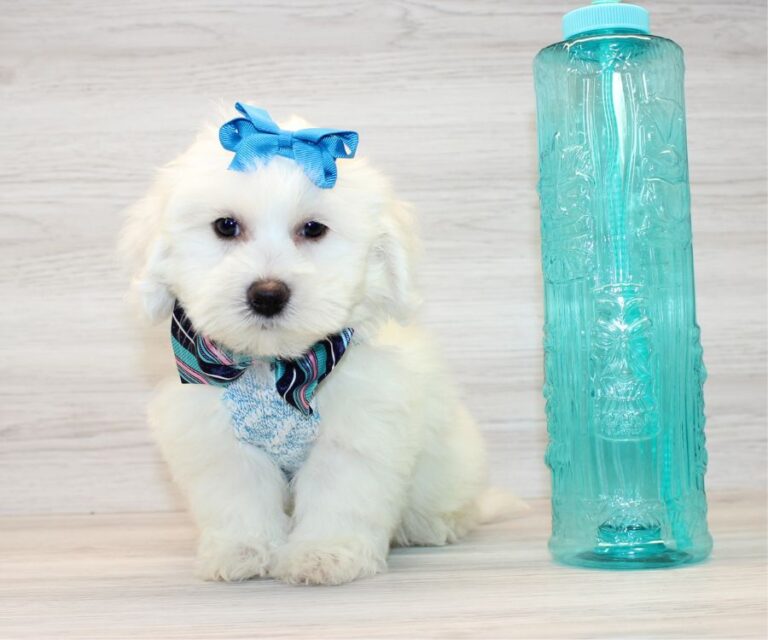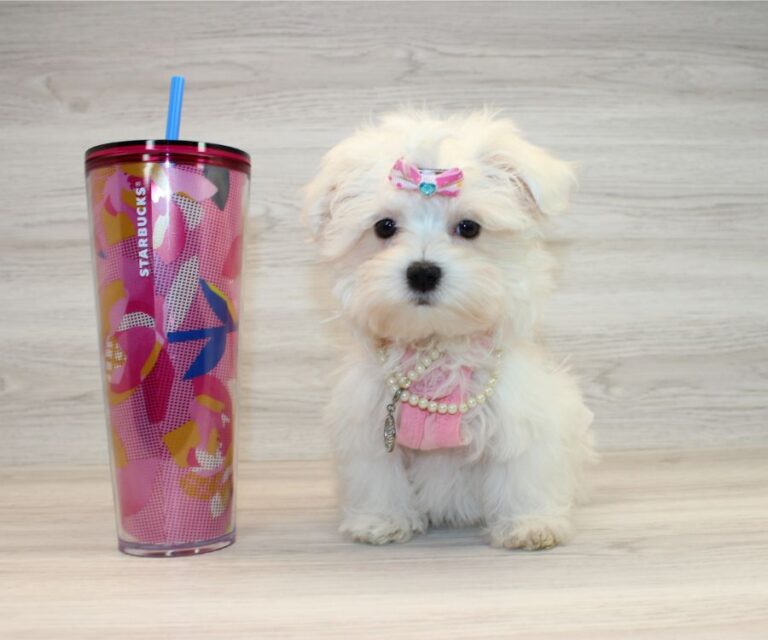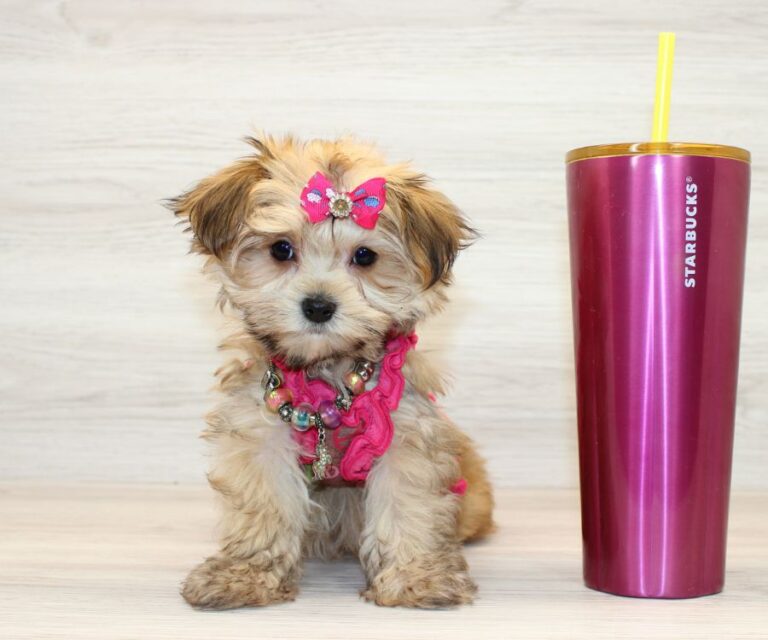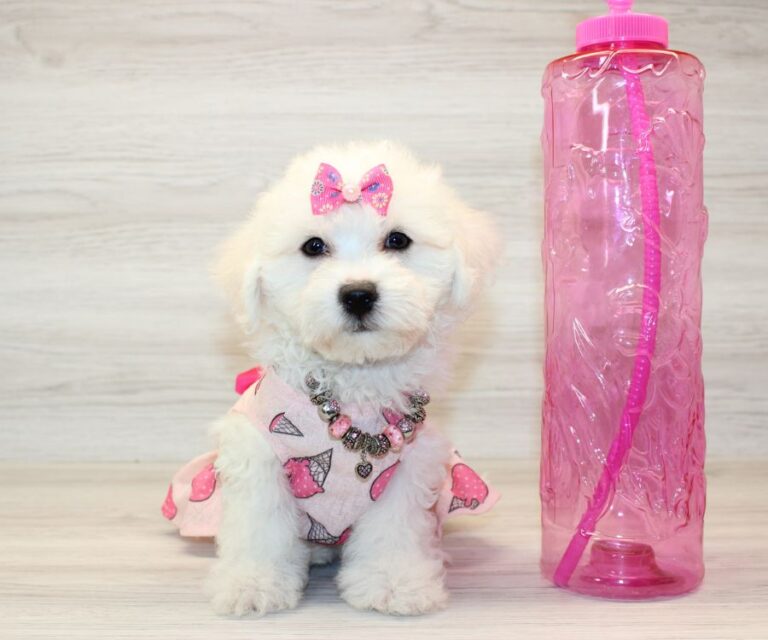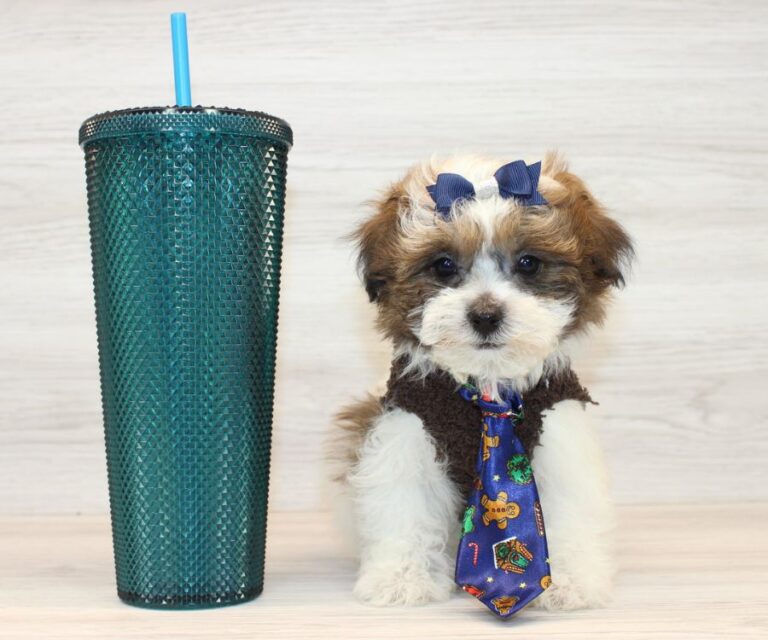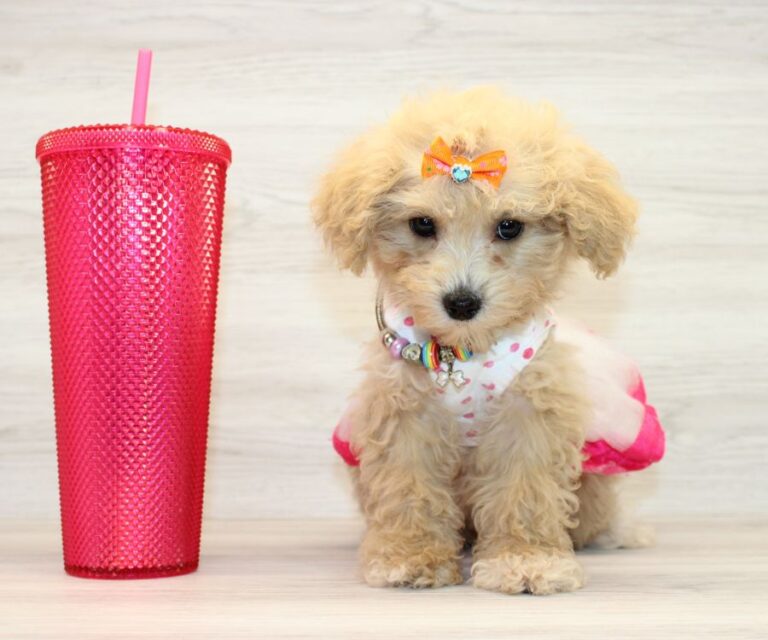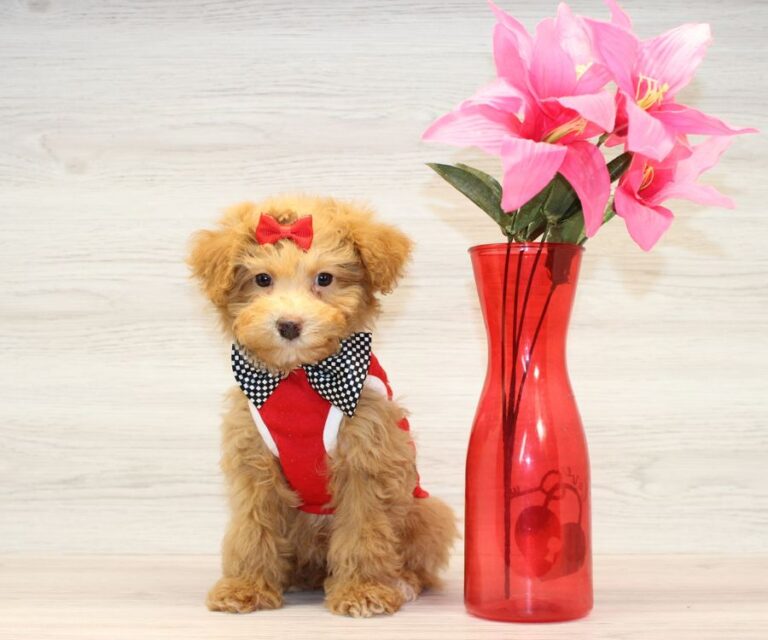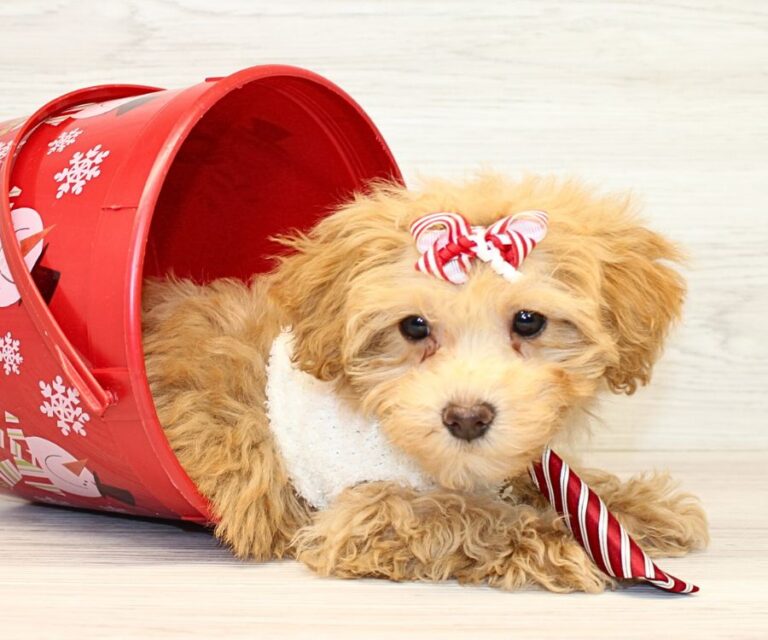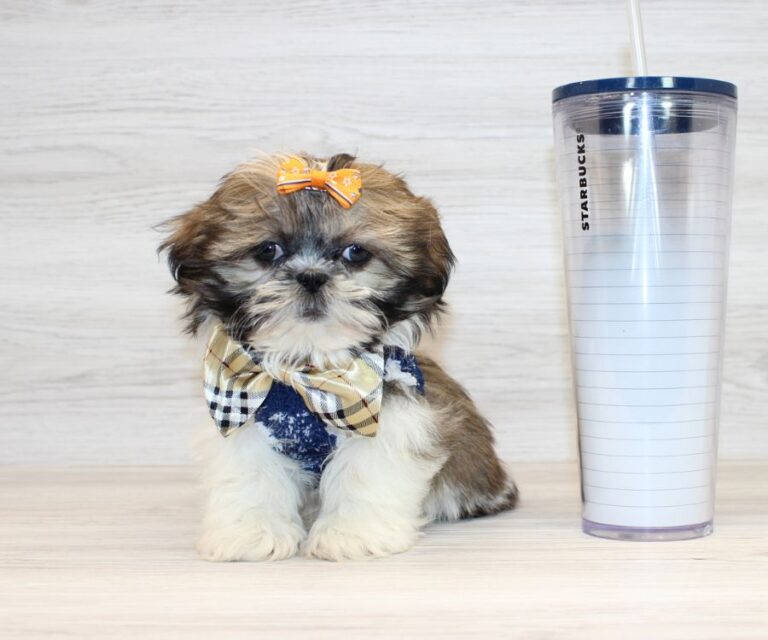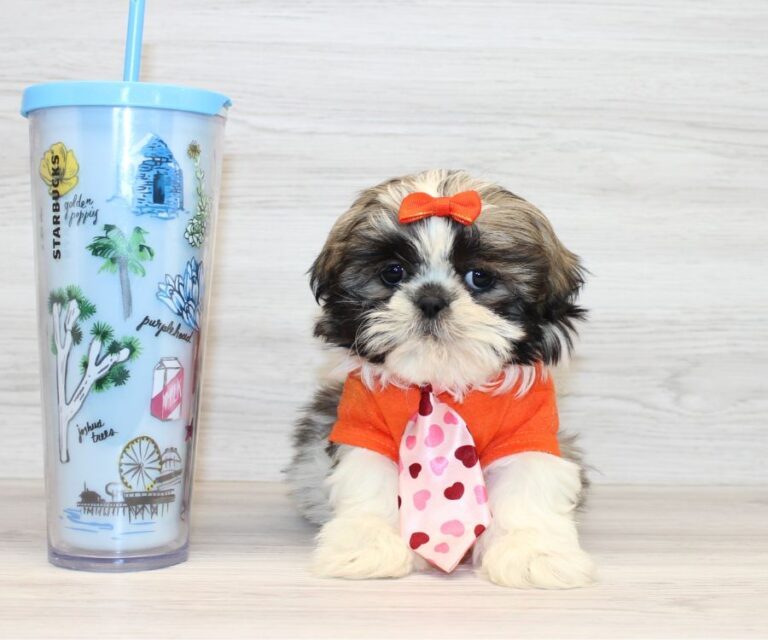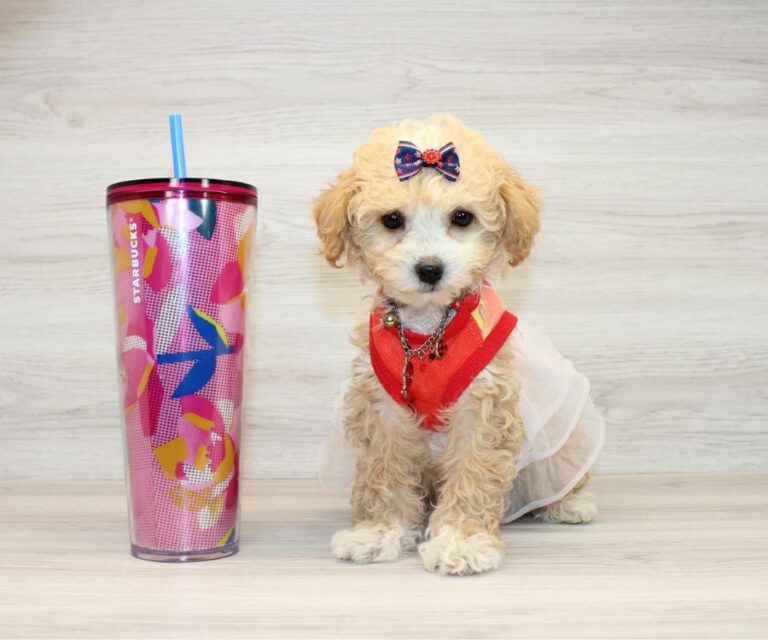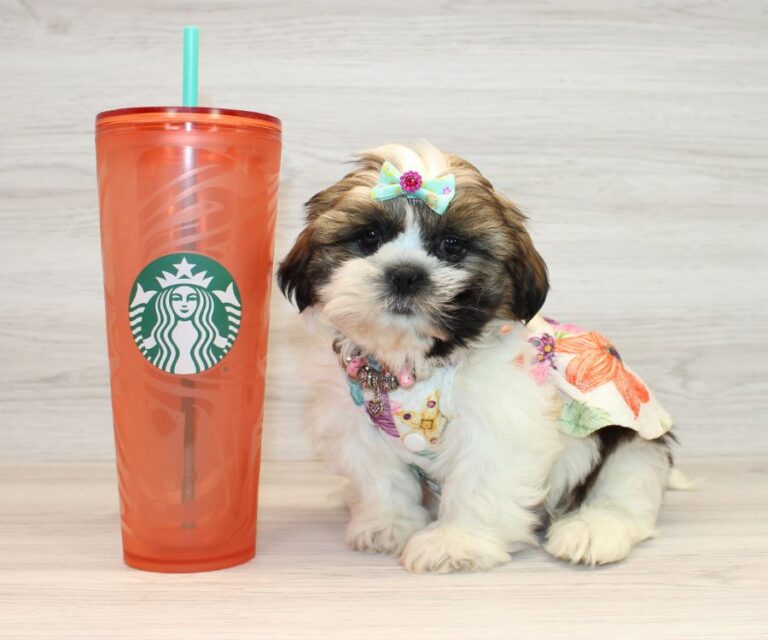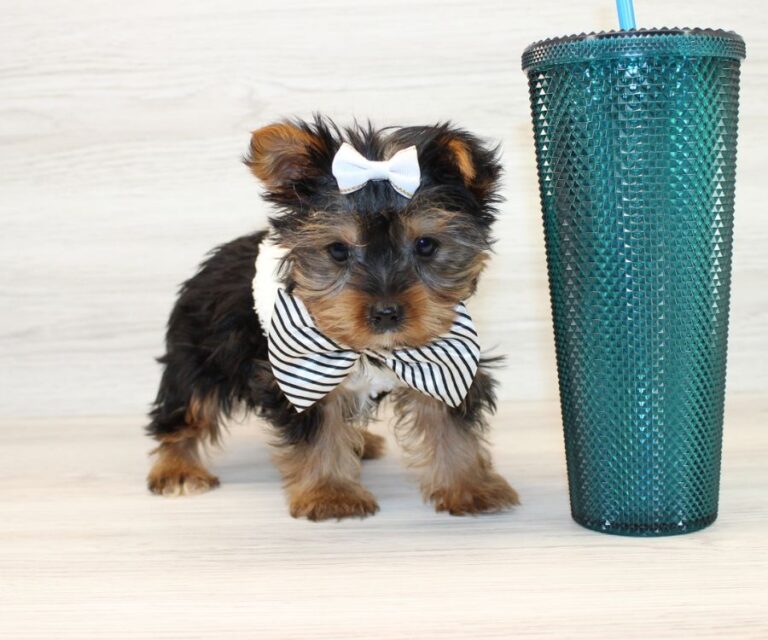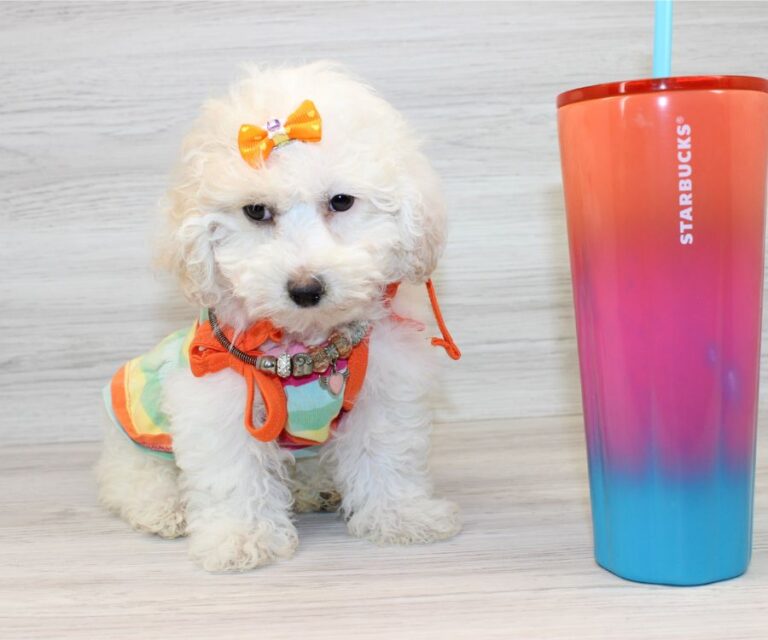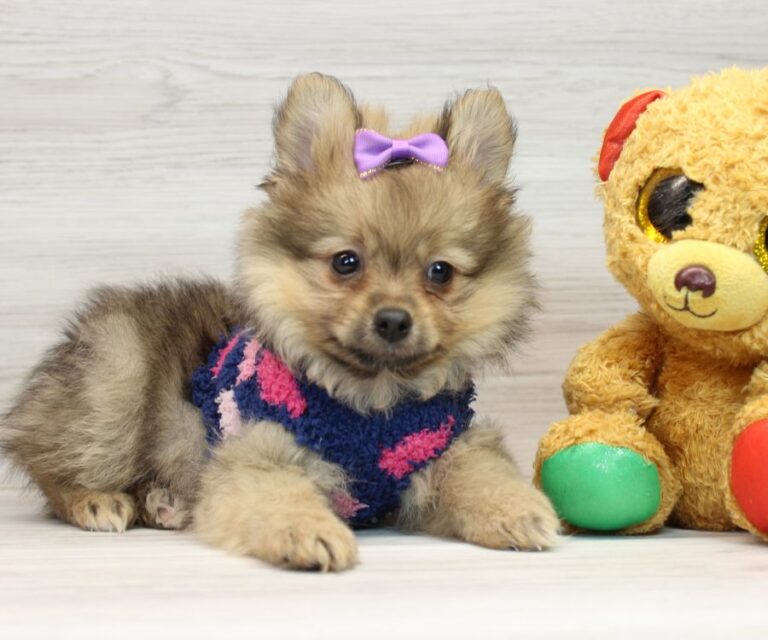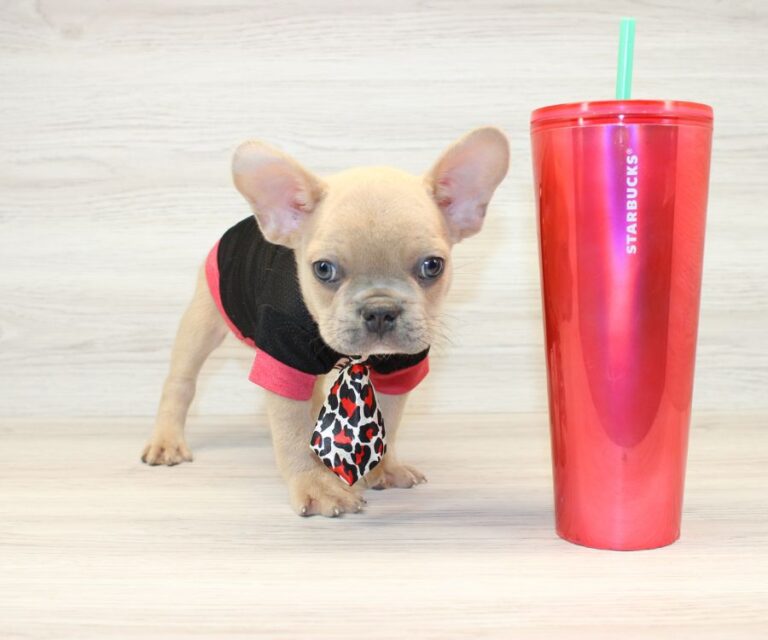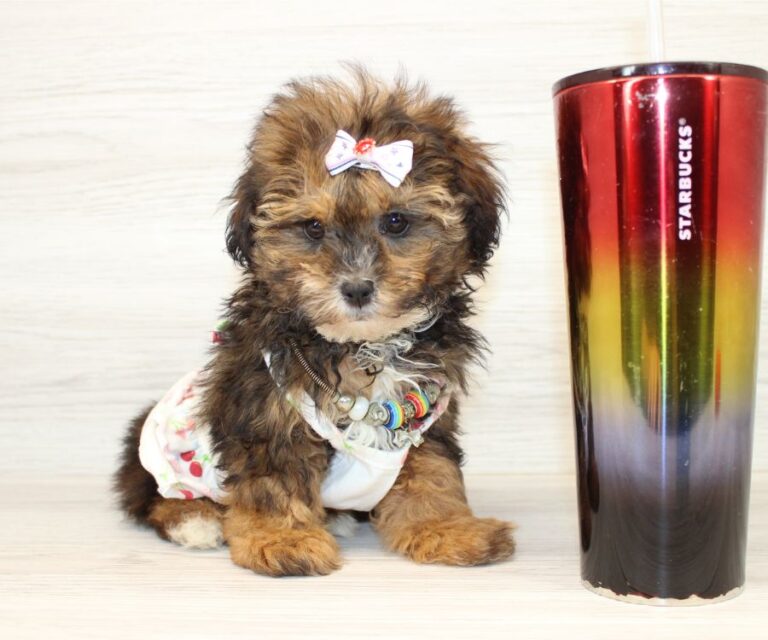If you’re looking for a tiny, adaptable companion in Amador City, CA, Puppyheaven.com offers an extensive selection of toy and teacup puppies tailored to thrive in smaller living spaces. These puppies are bred with a focus on maintaining robust health and amiable temperaments. Given their size, they have a thorough health plan, from vaccination schedules to regular vet check-ups. Discovering more about these delightful companions can further assist you in making a well-informed decision.
Why Choose Toy & Teacup Puppies
Choosing toy and teacup puppies offers you companions that aren’t only portable but also adaptable to smaller living spaces. These breeds typically exhibit a range of personality traits that cater to compassionate caregiving and companionship. Many toy breeds, such as the Chihuahua and Pomeranian, are known for their alertness and loyalty, while teacup breeds like the Teacup Yorkshire tend to display affection and a desire for frequent interaction. This makes them excellent companions for those living alone or in need of close companionship.
Understanding the lifespan expectancy of these small dogs is essential. Generally, toy and teacup puppies have a lifespan of 12 to 16 years, depending on the breed and overall health. This extended period of companionship allows you to develop a deep bond with your pet. Their long lifespan also means you’ll need to be prepared for a long-term commitment, ensuring they receive proper care throughout their lives, including regular veterinary check-ups, a nutritious diet, and ample emotional interaction.
As you consider a toy or teacup puppy, it’s important to align their personality traits and care needs with your ability to provide a loving, attentive home.
Benefits of Smaller Dog Breeds
You’ll find that smaller dog breeds, such as toy and teacup puppies, offer significant advantages when integrating them into your home. Their diminutive size requires less space and simplifies management, making them ideal for apartment living or smaller residences.
Additionally, these breeds generally demand less grooming and physical exercise compared to larger dogs, easing the maintenance effort on your part.
Easy Home Integration
Many small dog breeds seamlessly blend into home environments, offering both companionship and minimal spatial disruption. If you’re living in an area with space constraints, a smaller dog won’t require as much room as larger breeds, making them ideal for apartments or homes with limited square footage.
Additionally, teacup and toy puppies typically produce lower noise levels, which is important if you reside in close proximity to neighbors who appreciate a quieter environment. Their diminutive size also facilitates easier handling and training, ensuring that they adapt quickly to the rules of your household.
This adaptability not only enhances their integration but also eases the responsibilities you face in managing your living space effectively.
Lower Maintenance Needs
Smaller dog breeds generally require less grooming and healthcare, making them a practical choice for pet owners seeking a lower-maintenance companion. Their diminutive size simplifies many aspects of care, directly impacting your daily routine in a positive way.
Consider these points:
Exercise Requirements: They often need less physical activity compared to larger breeds, fitting well with less active lifestyles or smaller living spaces.
Space Considerations: Their compact size requires minimal space, making them ideal for apartment living or homes with limited yard space.
Grooming Needs: Shorter coats or less shedding means fewer grooming sessions and lower associated costs.
Healthcare: Typically, smaller breeds may incur fewer health issues, which can translate to less frequent and costly vet visits.
Puppyheaven.com’s Breed Selection
At Puppyheaven.com, you can choose from a diverse range of toy and teacup puppies, each bred with a focus on health and temperament. The breed selection has been meticulously curated to promote genetic diversity, which is essential for the vitality and longevity of these petite breeds. Understanding breed origins is paramount in preserving the unique characteristics and health profiles of each breed.
For instance, the Yorkshire Terrier originates from England and is known for its spirited demeanor and compact size, making it a perfect companion for those serving in therapeutic capacities or in small living spaces.
You’ll find that each breed’s historical purpose contributes to its present-day temperament and adaptability. The Pomeranian, originally larger and used for herding, has evolved into an excellent family pet, retaining its ancestral alertness and intelligence. Similarly, the Chihuahua, with roots in Mexico, displays a loyalty and protectiveness that belies its diminutive stature.
This careful attention to breed origins and genetic health not only promotes the well-being of the puppies but also supports you in making an informed choice suited to your lifestyle and the needs of those you aim to serve with your new companion.
Health Considerations for Tiny Puppies
When considering toy and teacup puppies, you must prioritize their unique health needs due to their diminutive size. Their small stature makes them particularly susceptible to certain health challenges that are less common in larger breeds. Understanding and addressing these concerns is essential to make sure they lead long, healthy lives.
Genetic Vulnerabilities: Toy and teacup breeds often face a range of inherited health issues. These can include heart defects, respiratory problems, and fragile bones. Regular check-ups with a vet who specializes in small breeds can help catch and manage these conditions early.
Vaccination Sensitivity: Due to their tiny bodies, toy and teacup puppies may react differently to vaccinations compared to larger puppies. It’s important to discuss a tailored vaccination schedule with your vet to avoid overloading their sensitive systems.
Hypoglycemia Risk: Their small size means they’ve less body fat and may struggle to regulate blood sugar levels. Monitoring their diet closely to ensure frequent, nutrient-rich feedings can prevent dangerous drops in blood sugar.
Temperature Sensitivity: These puppies can easily become too cold or overheat. Keeping their environment at a stable, comfortable temperature helps prevent stress and illness.
Addressing these health considerations will help you provide the best care for your tiny companion.
Preparing for Your New Puppy
Now that you understand the health considerations, it’s time to prepare for the arrival of your new toy or teacup puppy. Initiating proper preparations is important to guarantee a safe and welcoming environment for your petite companion.
First, focus on puppy-proofing your home. This involves securing electrical cords, removing small objects that could be swallowed, and making sure harmful chemicals are out of reach. You’ll need to create a secure, cozy space where your puppy can feel safe and comfortable.
Next, schedule veterinary appointments ahead of time. It’s essential to establish a relationship with a vet who’s experienced in handling toy and teacup breeds. During the initial visits, your puppy will receive necessary vaccinations and undergo a thorough health examination. Discuss a proper vaccination schedule and inquire about specific health issues common to smaller breeds. Also, consider setting up regular check-ups to monitor your puppy’s development and address any concerns promptly.
Training Tips for Small Dogs
Training your toy or teacup puppy requires patience and consistency, using methods tailored to their small stature and unique needs. These diminutive breeds often face unique training challenges due to their size and personality traits. Behavior modification for these small dogs needs a gentle, yet firm approach to make certain they understand and follow your commands without feeling overwhelmed or scared.
Here are specific strategies to aid in training your small dog:
Create a Safe Training Environment: Guarantee the training area is free from hazards and distractions. A quiet room where the puppy feels comfortable will help them focus on your instructions.
Utilize Positive Reinforcement: Small dogs respond well to treats and praises as rewards for good behavior. This reinforces their desire to please and supports effective behavior modification.
Keep Training Sessions Short: Their attention spans are limited. Sessions of 5-10 minutes are ideal to keep them engaged without causing fatigue or loss of interest.
Be Consistent with Commands: Consistency helps in building understanding and trust. Use the same words and actions each time you command to avoid confusing your puppy.
Nutrition and Feeding Guide
Just as proper training sets the foundation for your puppy’s behavior, appropriate nutrition is key to their overall health and development. Establishing a consistent feeding schedule is vital for your toy or teacup puppy. Typically, puppies require feeding three to four times a day. As they grow, you’ll gradually reduce this to twice daily. It’s important to strictly follow these feeding schedules to prevent hypoglycemia, a common issue in smaller breeds due to their fast metabolism.
When selecting food, opt for high-quality brands that cater specifically to small breed puppies. These formulations ensure that the nutritional content supports their rapid growth while being gentle on their delicate digestive systems. Pay close attention to the ingredient list to avoid common allergens like corn, soy, and certain proteins that can trigger allergic reactions in sensitive pups.
Allergy management is integral to their care. If you notice symptoms such as excessive itching, red skin, or gastrointestinal upset, consult your veterinarian. They might recommend hypoallergenic food or specific dietary adjustments to alleviate these issues.
Grooming Your Toy or Teacup Puppy
Grooming your toy or teacup puppy regularly is essential for maintaining their overall health and appearance. You’ll want to dedicate time to learn proper brushing techniques and understand the appropriate bathing frequency to keep their delicate skin and coat in peak condition.
Here are some key aspects to focus on:
- Brush Selection: Opt for a soft-bristled brush or a grooming mitt designed specifically for small breeds with fine hair. This prevents skin irritation and guarantees effective removal of loose fur and dander.
- Brushing Techniques: Gentle strokes are vital; start at the head, moving down towards the tail, and always brush in the direction of hair growth to avoid discomfort.
- Bathing Frequency: Bathe your puppy no more than once a month using a mild, puppy-appropriate shampoo. Over-bathing can strip their coat of natural oils, leading to dryness and irritation.
- Ear and Eye Care: Regularly check and clean their ears and eyes, as toy and teacup breeds are prone to infections in these areas. Use soft, damp cloths for cleaning, and never insert anything into the ear canal.
Socializing Your Miniature Puppy
Socializing your miniature puppy is vital for their development. Understanding the essentials of puppy playdates can establish a strong foundation.
You’ll need to recognize and manage fear responses effectively to guarantee your puppy’s comfort and safety during interactions.
Rewarding positive interactions fosters a positive social outlook and encourages your puppy to engage confidently with others.
Puppy Playdate Essentials
Make sure you pack a toy and a snack for your miniature puppy’s first playdate to help them feel comfortable and engaged. Choosing the right location and ensuring playtime safety are essential for a positive experience.
Here’s what to bring:
- Comfortable Harness: Ensures control without discomfort.
- Water Dish: Keeps your puppy hydrated.
- First Aid Kit: For any unexpected minor injuries.
- Puppy Pads: For easy clean-ups if accidents happen.
Select a location that’s secure and puppy-friendly, preferably with a fenced area so your puppy can roam freely yet safely. Always supervise interactions closely to make sure all play remains gentle and positive, fostering a nurturing environment for your puppy’s social development.
Handling Fear Responses
When introducing your miniature puppy to new situations, it’s important to recognize and address their fear responses promptly and effectively. Identifying fear triggers is essential; these can range from loud noises to unfamiliar people.
Observing signs of anxiety, such as whimpering or hiding, allows you to intervene with appropriate calming techniques. To mitigate fear, create a safe environment where your puppy can retreat. Gradually expose them to new experiences, ensuring each step is manageable and not overwhelming.
Utilize soothing tones and gentle handling to reassure your puppy. Remember, consistent and patient training is key to helping your miniature puppy become well-adjusted. With time, they’ll learn to cope with new environments more confidently.
Rewarding Positive Interactions
Rewarding your miniature puppy for positive interactions is essential in their social development. Utilizing interactive rewards and behavioral reinforcements can greatly enhance their ability to engage positively with both humans and other animals. Here are some effective ways to foster this growth:
- Offer treats immediately after your puppy shows desirable behavior during social interactions.
- Give verbal praise in a warm, enthusiastic tone to reinforce good manners.
- Use toys as a form of reward during playtime with other puppies or people, promoting positive engagement.
- Implement gentle petting or light scratches in their favorite spots to show approval for their social behaviors.
How to Purchase From Puppyheaven.Com
To purchase a puppy from PuppyHeaven.com, you’ll first need to visit their website and browse through the available selection of toy and teacup puppies. Once you’ve identified a puppy that captures your heart, you can proceed to learn about the specific payment options available. PuppyHeaven.com offers multiple payment methods including credit cards, financing options, and sometimes even installment plans to accommodate different financial situations. It’s important to select the method that best suits your serving intentions and financial readiness.
Next, consider the shipping methods. PuppyHeaven.com provides detailed descriptions of their shipping procedures, ensuring the safety and comfort of the puppies during transit. They typically offer both air and ground transportation options, depending on the geographical location and your preferences. You should carefully review these options, keeping in mind the well-being of your new puppy.
After selecting your preferred payment and shipping methods, you’ll need to complete any necessary paperwork, which may include a purchase agreement and health guarantees. Finally, confirm all details and finalize your purchase. The team at PuppyHeaven.com is available to assist you throughout this process, ensuring a smooth handover for both you and your new puppy.
Conclusion
As you explore the charming world of toy and teacup puppies, remember that their size brings unique needs. Make sure you’re ready to meet their health, nutrition, and socialization requirements. Trust Puppyheaven.com for a diverse breed selection and responsible purchasing guidance.
Proper grooming, feeding, and care are vital for your tiny companion’s well-being. Embrace the journey of adding a miniature puppy to your life, creating a loving and healthy environment for your new furry friend.

